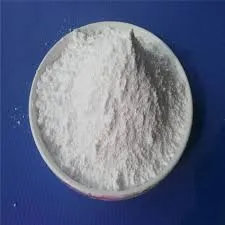Understanding the Definition of API Drugs
The term API stands for Active Pharmaceutical Ingredient, which represents the core substance in a pharmaceutical drug responsible for its therapeutic effect. Understanding what constitutes an API and its significance in drug formulation is crucial for both medical professionals and consumers.
What is an API?
An Active Pharmaceutical Ingredient (API) is fundamentally the biologically active component in a medication that produces the desired therapeutic effect. In essence, APIs work to alleviate symptoms, cure diseases, or help manage chronic conditions. They can be derived from various sources, including plants, animals, or can be synthesized through chemical processes in a laboratory.
To illustrate, consider a common pain reliever like aspirin. In this medication, the active ingredient is acetylsalicylic acid—the API that interacts with the body's systems to reduce pain and inflammation. In contrast, other components of the drug, such as fillers, binders, and preservatives, do not have any therapeutic effect; these are referred to as excipients.
The Role of APIs in Pharmaceuticals
APIs play a pivotal role in the pharmaceutical industry. Every drug developed must have a specific API to ensure that it effectively targets its intended condition. The development of APIs requires extensive research and development (R&D), mainly because they need to undergo rigorous testing to guarantee their safety and efficacy.
Pharmaceutical companies invest significantly in R&D to discover new APIs. This process often involves the synthesis of new chemical compounds, testing them in vitro (in the lab) and in vivo (in living organisms), and eventually transitioning to clinical trials. The goal is to ensure that the API produces the desired pharmacological response in patients while minimizing any potential side effects.
api drug definition

Regulatory Oversight
Given their critical role, APIs are subject to stringent regulations imposed by health authorities worldwide. In the United States, for instance, the Food and Drug Administration (FDA) oversees the approval and monitoring of APIs. Before a new API can be included in a medication, it must undergo a series of evaluations, including preclinical studies and clinical trials, to determine its safety, effectiveness, and manufacturing quality.
The International Council for Harmonisation of Technical Requirements for Pharmaceuticals for Human Use (ICH) provides guidelines that manufacturers must follow to ensure that APIs maintain their quality and are produced consistently. The adherence to Good Manufacturing Practices (GMP) is crucial; it ensures that APIs are produced in controlled environments to prevent contamination or alterations that could compromise their efficacy.
Importance of Quality in APIs
The quality of APIs is paramount for the effectiveness and safety of pharmaceutical products. Substandard or contaminated APIs can lead to serious adverse reactions in patients, which is why quality assurance is a critical aspect of the pharmaceutical industry. Different techniques, such as high-performance liquid chromatography (HPLC) and mass spectrometry, are employed to analyze the chemical composition, purity, and stability of APIs, ensuring they meet rigorous specifications before reaching consumers.
Moreover, the sourcing of APIs has gained significant attention due to globalization. Many pharmaceutical companies rely on contract manufacturers and suppliers from different countries, which raises concerns about quality control and regulatory compliance. The ongoing discussions about the need for better oversight of the global supply chain highlight the importance of ensuring that APIs produced in different parts of the world meet the same stringent standards as those produced domestically.
Conclusion
In summary, Active Pharmaceutical Ingredients are the cornerstone of effective medication, responsible for delivering therapeutic benefits. Their development and regulation encompass a complex interplay of scientific research, regulatory compliance, and quality assurance that ensures drugs are both safe and effective for patient use. As patients and healthcare professionals, understanding the role and significance of APIs can foster a deeper appreciation for the medications they rely on while advocating for stringent safety standards in the pharmaceutical industry. As the industry continues to evolve, ongoing discussions regarding the sourcing, manufacturing, and regulation of APIs will remain vital to safeguarding public health.

